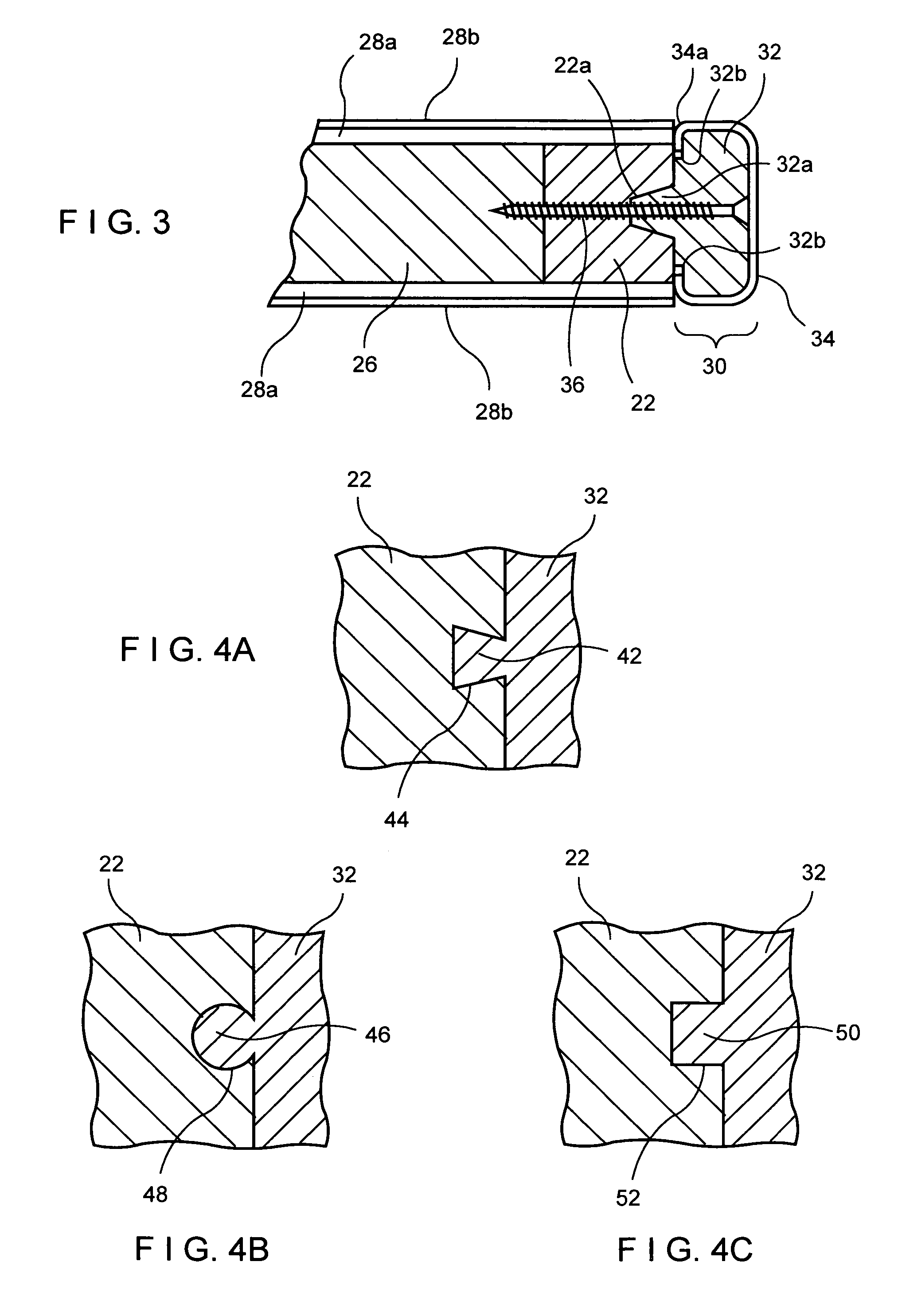Door edge construction
- Summary
- Abstract
- Description
- Claims
- Application Information
AI Technical Summary
Benefits of technology
Problems solved by technology
Method used
Image
Examples
Embodiment Construction
[0022] Turning now to the drawings, in particular FIGS. 1, 2 and 3, a door of the type commonly used in health care facilities and the like, but incorporating the present invention, is shown. Such a door 20 typically comprises vertical stiles 22 and top and bottom rails 24, surrounding a core 26. The stiles 22 and rails 24 preferably are made of hardwood and the core 26 of particle board, although other materials may be used to provide the necessary strength and rigidity.
[0023] Finish panels 28 cover the particle board core, top and bottom rails and stiles on both sides to provide strength, impact resistance and aesthetic appeal. As seen best in FIG. 3, the panels 28 may comprise a hardboard layer 28a covered by a decorative plastic cladding 28b such as of ACROVYN®, a vinyl acrylic plastic manufactured by Construction Specialties, Inc., Lebanon, N.J. The layers 26, 28a and b are laminated together to form a 5-ply construction. Doors of the type illustrated are manufactured, for exa...
PUM
 Login to View More
Login to View More Abstract
Description
Claims
Application Information
 Login to View More
Login to View More - R&D
- Intellectual Property
- Life Sciences
- Materials
- Tech Scout
- Unparalleled Data Quality
- Higher Quality Content
- 60% Fewer Hallucinations
Browse by: Latest US Patents, China's latest patents, Technical Efficacy Thesaurus, Application Domain, Technology Topic, Popular Technical Reports.
© 2025 PatSnap. All rights reserved.Legal|Privacy policy|Modern Slavery Act Transparency Statement|Sitemap|About US| Contact US: help@patsnap.com



